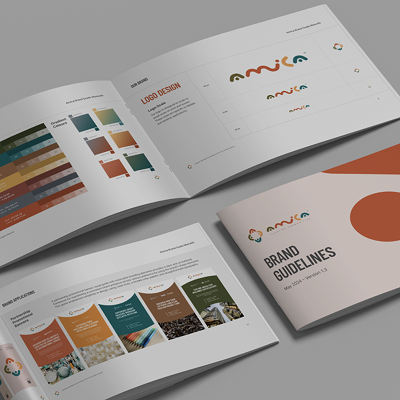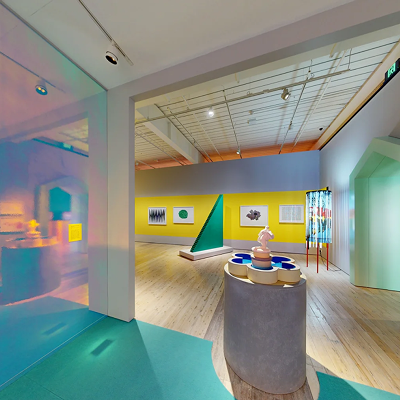The Joy of Playgrounds: Essential for Child Development
November 5, 2023
With technology becoming more and more commonplace in our society, children are overwhelmed with excessive use of smartphones, tablets, and video games leaving less time for outdoor play. This lack of free play can have negative consequences for their development.
Playgrounds provide children with opportunities to explore, receive, learn and practice key developmental skills in a safe environment. Playgrounds allow children to express themselves freely and have fun while they develop important physical, social, cognitive and emotional skills.
Parents need to understand how crucial time at the playgrounds is for children development. Playgrounds provide opportunities for children to explore and use their imagination, which helps them develop important motor skills. In fact, playgrounds represent one of the most important parts of children’s early development.
The University of Minnesota Institute of Child Development examines the link between play and brain development, motor-sill, and social capabilities. What’s been discovered is that emotional, social motor, and cognitive learning is enhanced and accelerated by play.
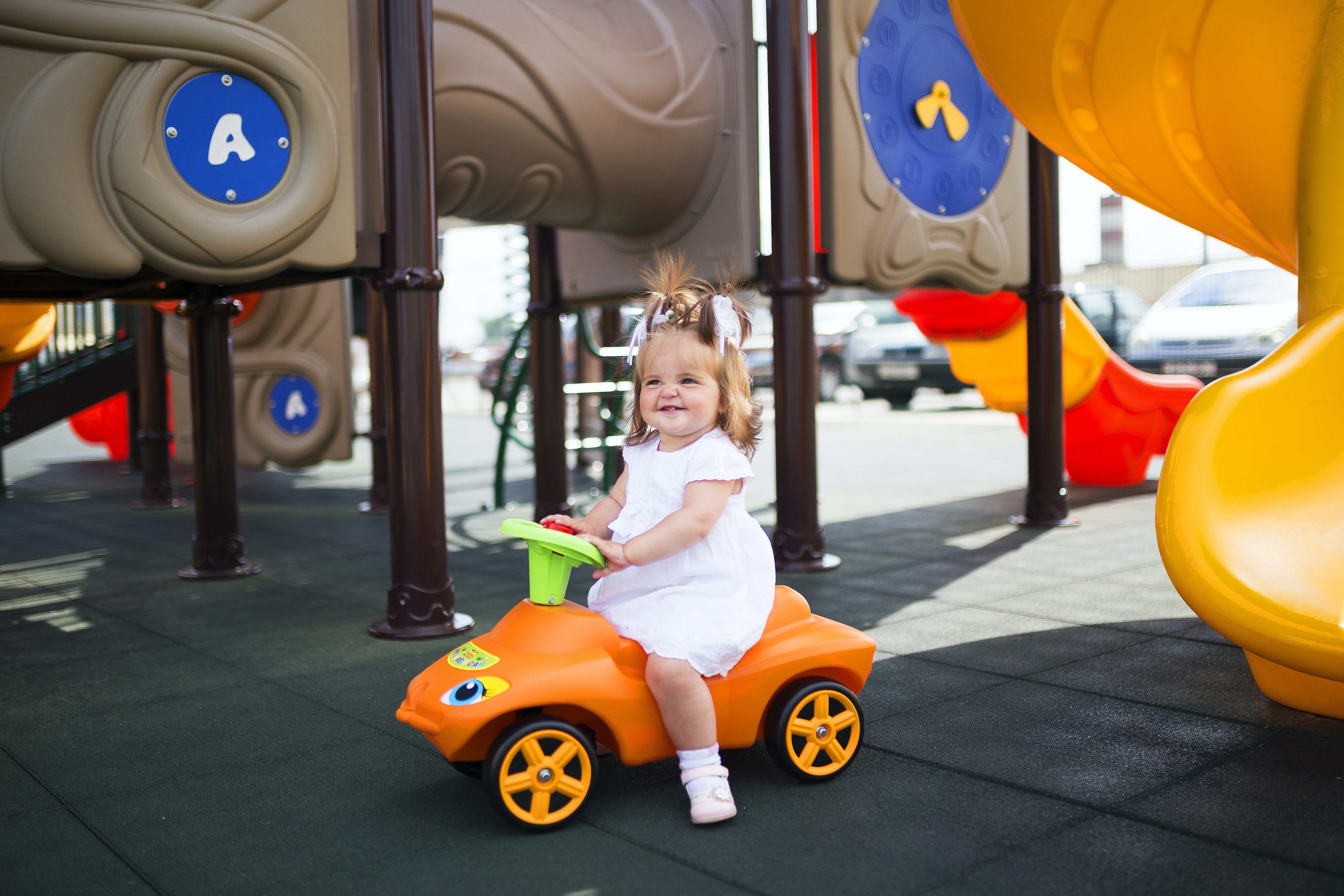
Source: Pexels
Playground playtime can significantly enhance children’s motor skills development and boost their sense of coordination. Children learn valuable lessons on playgrounds, their abilities to think fast is significantly developed when they have no idea what will be coming next.
Children tend to work hard to improve their physical development without them even realising it and playground environment allow children to learn to develop their social skills and learn to figure out how to put themselves in many situations with their peers. Children tend to be more adventurous at a playground, and they will unconsciously force themselves to do many things they want to do in order to join the fun.
A playground is an important place for children to learn how to interact with other kids, and it also helps them understand boundaries. They will learn how to use both verbal and non-verbal communication in order to participate in activities or play.
On the playground, children will learn essential social skills such as how to introduce themselves to new people, compromise, set boundaries, and solve problems. These skills will play a crucial role in their future and help them establish interpersonal relationships.
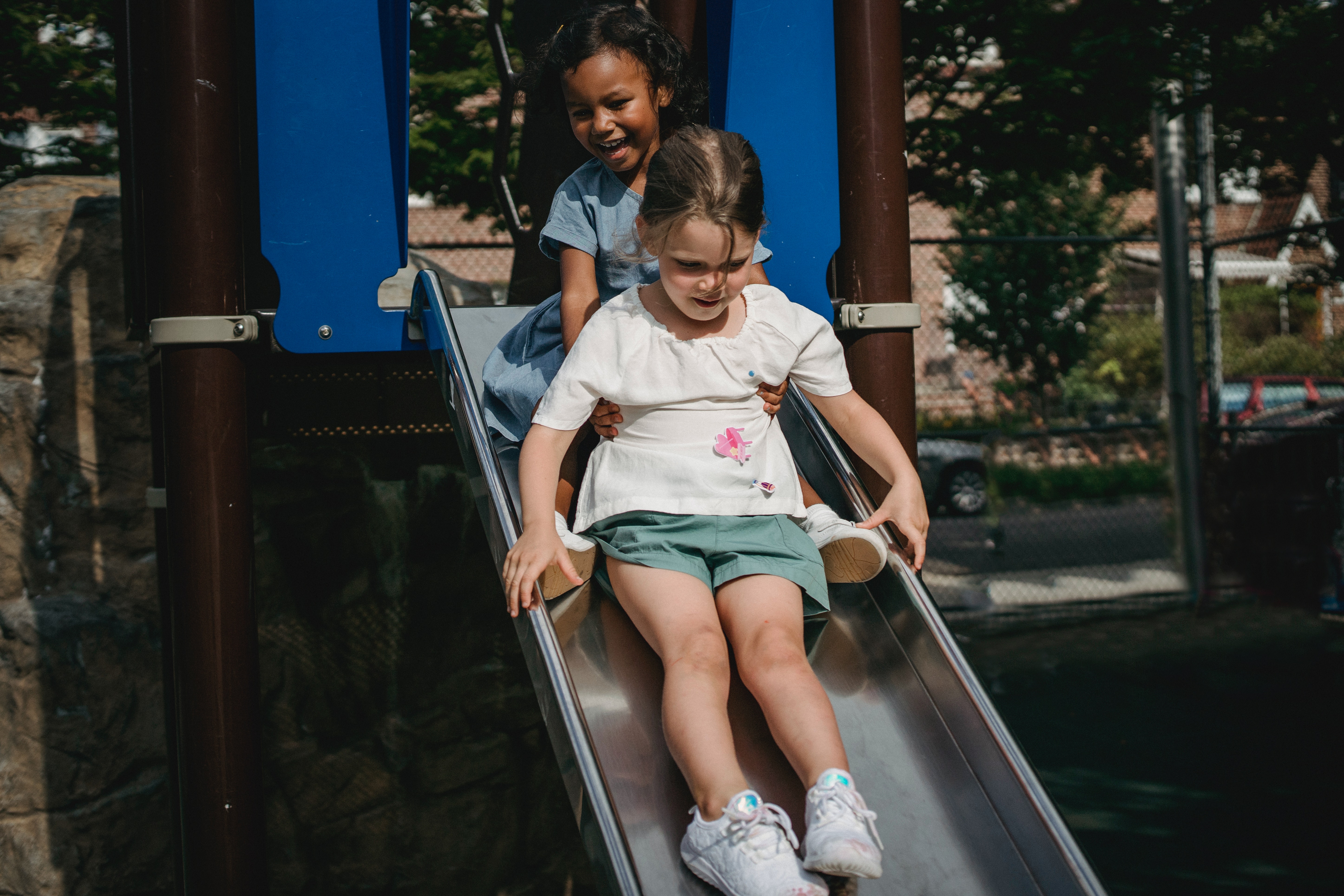
Source: Pexels
Playgrounds are often occupied by children of varying ages, which means that some of the older children will likely have more advanced communication skills compared to the younger ones. In order for the younger ones to be able to participate and benefit from the activities on the playground, they will have to learn to communicate at many different levels.
Although the benefits of this enhanced development will not be immediately seen, they will become evident over time as children grow and have to face a wide variety of people—especially in a work environment.
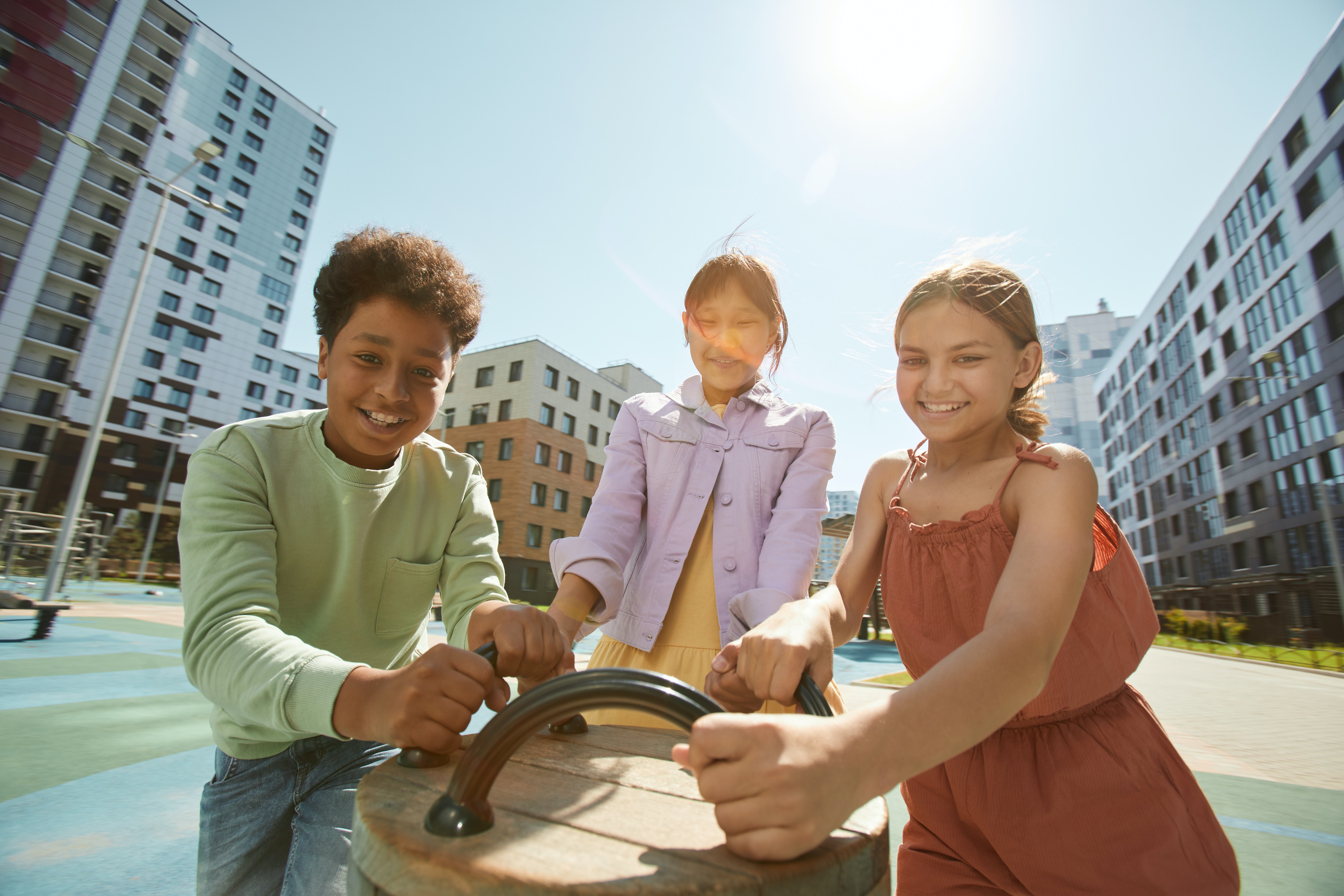
Source: Pexels
Playground often occupied by children of varying ages, and it means some of the older children most probably will have more advanced communication skills compared to the younger ones, and in order for the younger ones to be able to participate and benefit from the activities on the playground, they will have to learn to communicate at many different levels, although the benefits of this enhance development will not immediately be seen, they will become evident over time when children grow and have to face a wide variety of people, especially in a work environment.
What is Play
Outdoor play is not only beneficial for children’s development, but as they grow older, it becomes increasingly important for parents to encourage their kids to find time for outdoor activities. This can be exploring parks and local playgrounds—anything to get them enjoying the great outdoors!
Playing is a natural and fun way for children to keep themselves active, well, and happy—it helps with their healthy development across the board. Children need various unstructured play opportunities from birth until the age of teenagers in order to maintain good physical and mental health, as well as learning important life skills.
Play is essential for children’s mental, physical and social development. Through play, they learn more about the world and themselves. Play allows children to be creative while developing their imagination, emotional strength, cognitive skills, and dexterity.
It also offers an ideal opportunity for parents to fully engage with their loved ones. Through play, children at an early age can explore the world around them and find ways to interact with it on their own terms.
This playtime allows them to develop new skills and confidence that they can use to face future challenges. In group play, children will learn how to work well with others, how to share and compromise, how to solve problems, and how to be self-advocates. All of these skills will be vital as they continue to grow and develop.
Play is essential for all children for their physical and social development stage, but unfortunately, not every child is fortunate enough to have enough time to do so. Many children are being raised in an increasingly pressured style that most probably will limit the benefits they would gain from child-driven play.
Every child deserves the play opportunity in order to develop their very own unique potential. And parents need to consider all factors that will potentially interfere with children’s optimal development and allow their little ones to fully reap the advantages associated with play.

Source: Pexels
Freely chosen play, also known as child-driven play, is when children decide and control their play according to their own choice, imagination, and interest without being led by adults. Although parents still need to supervise the activity, freely chosen play helps improves children’s well-being and development.
Children often want to create some challenges in their play, they will unconsciously test themselves to find out their own limits, they will learn how to deal with risk through play and learn how to compromise and problem-solve in a good manner. Freely chosen play is a great way for children to explore their interests, try new things, and develop important life skills.
Child-driven play is so important because it allows children to explore their own interests, learn how to make decisions, and move at their own pace. When parents are involved in their children’s play, they get to see the world from their child’s perspective, which then helps improve communication and understanding between parents and their children. Children who are not very talkative may be able to express themselves more easily and parent’s can gain a better understanding of their experiences, views and even frustration during play. Parent’s should take advantage of this opportunity to fully engage with their children.
As children grow older and as technology advances, there is an increasing temptation to allow them to spend more time in front of screens than playing outside with their peers. However, it is crucial to find ways to encourage children to find time for outdoor play, as it is important for them to learn many important skills that will help with their physical, social and emotional development.
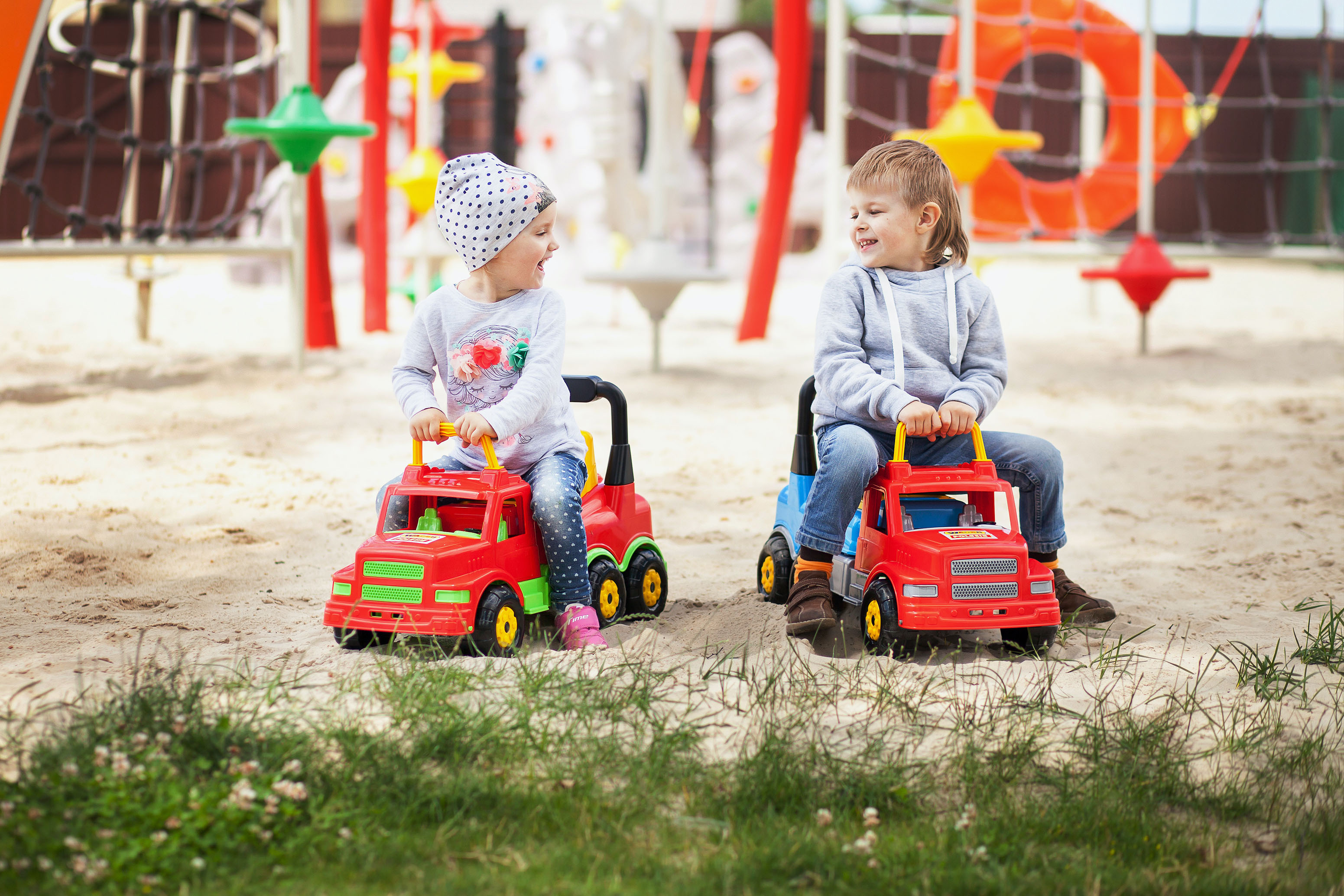
Source: Pexels
Child-Driven Play
What is freely chosen to play or child-driven play? It’s when children decide and control their play according to their own choice, imagination, and interest without being led by adults, although parents still need to supervise the activity, freely chosen play helps improves children’s well-being and development. Children often want to create some challenges in their play, they will unconsciously test themselves to find out their own limits, they will learn how to deal with risk through play and learn how to compromise and problem-solving in a good manner.
Child-driven play will allow children to practice decision-making skills and will allow them to move at their own pace, engage in the passions they wish to pursue, and discover a new interest.
When parents are involved in children’s play or join in child-driven play, parents will have the unique opportunity to see the world from their children’s point of view, and it will help greatly to improve understanding and communication between parents and their children. Children who are not too talkative may be able to express their experiences, views and even frustration during play, it will allow parents to gain a complete understanding of their perspective, simply put, it will give parents a great opportunity to fully engage with their children.
As children grow older and as technology advances, allowing children to spend screen time more than playing outside with their peers, it is crucial to find a way to encourage them to find time for outdoor play, it is important for them to learn many important skills to help with their physical, social and emotional development.
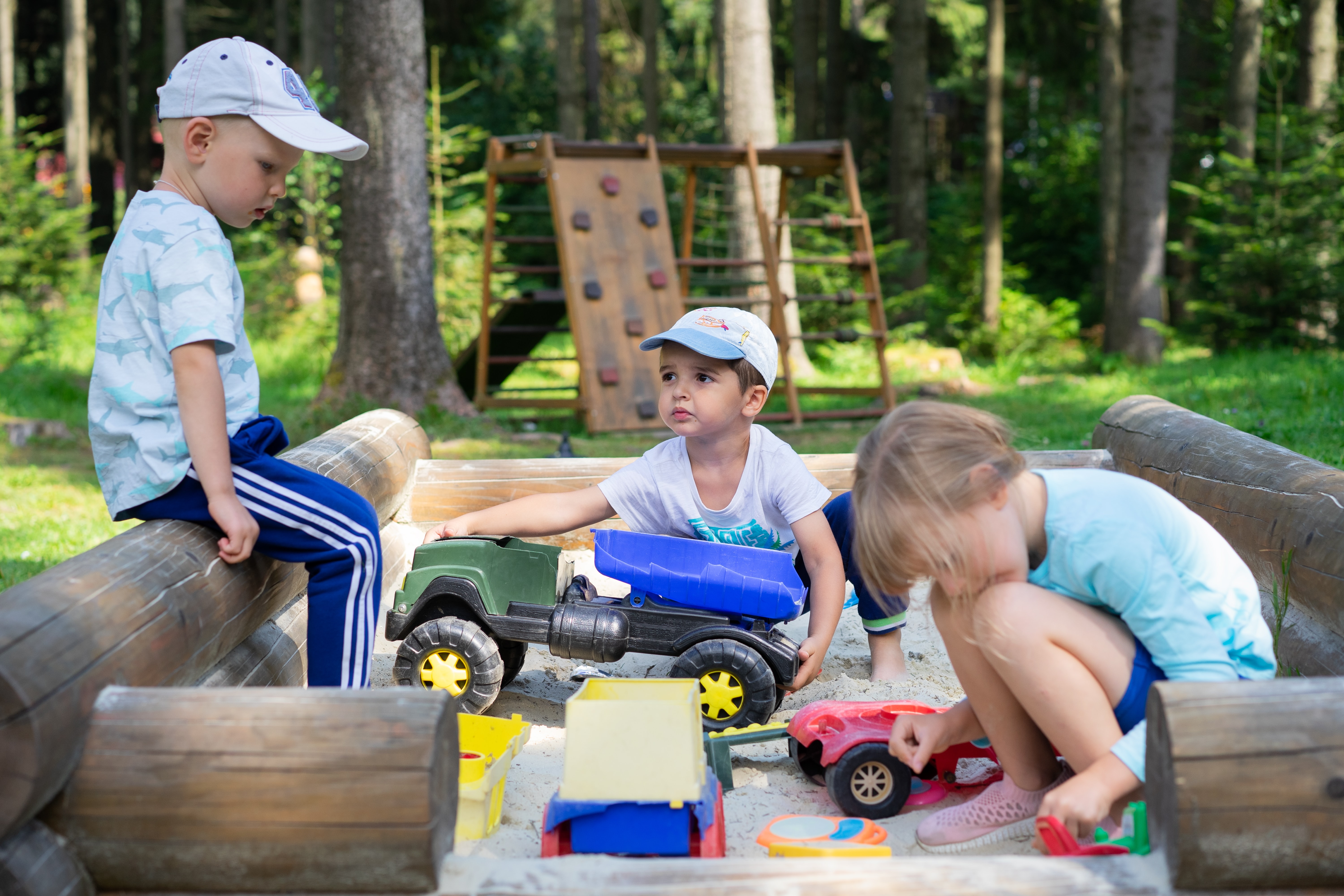
Source: Unsplash
Learning Through Play
Playtime is an essential part of children’s development, as it helps them learn a variety of skills. Studies have shown that play is crucial for children’s motor skills, coordination, cognitive abilities, language, and social awareness. So encourage your little ones to keep playing - it’s good for them! Play is an essential part of a child’s life as it fuels their creativity and curiosity. As they grow older, their play will become more complex and without it, their ability to learn and develop is hindered. Play is crucial for a child’s growth and development so encouraging them to play is important for their future success.
Playgrounds are the perfect platforms for children to enhance their social skills and engage in free play. Structured play such as sports and organised activates and very different than free play or child-driven play, in playgrounds the different spaces and structures will offer them the freedom to be able to choose what and how they want to play, they will be able to explore their own natural interest and tendencies, interact with a wider range of age groups and enhance their creative instincts. Now we know how important playground is, here are a few benefits of playgrounds for children development.
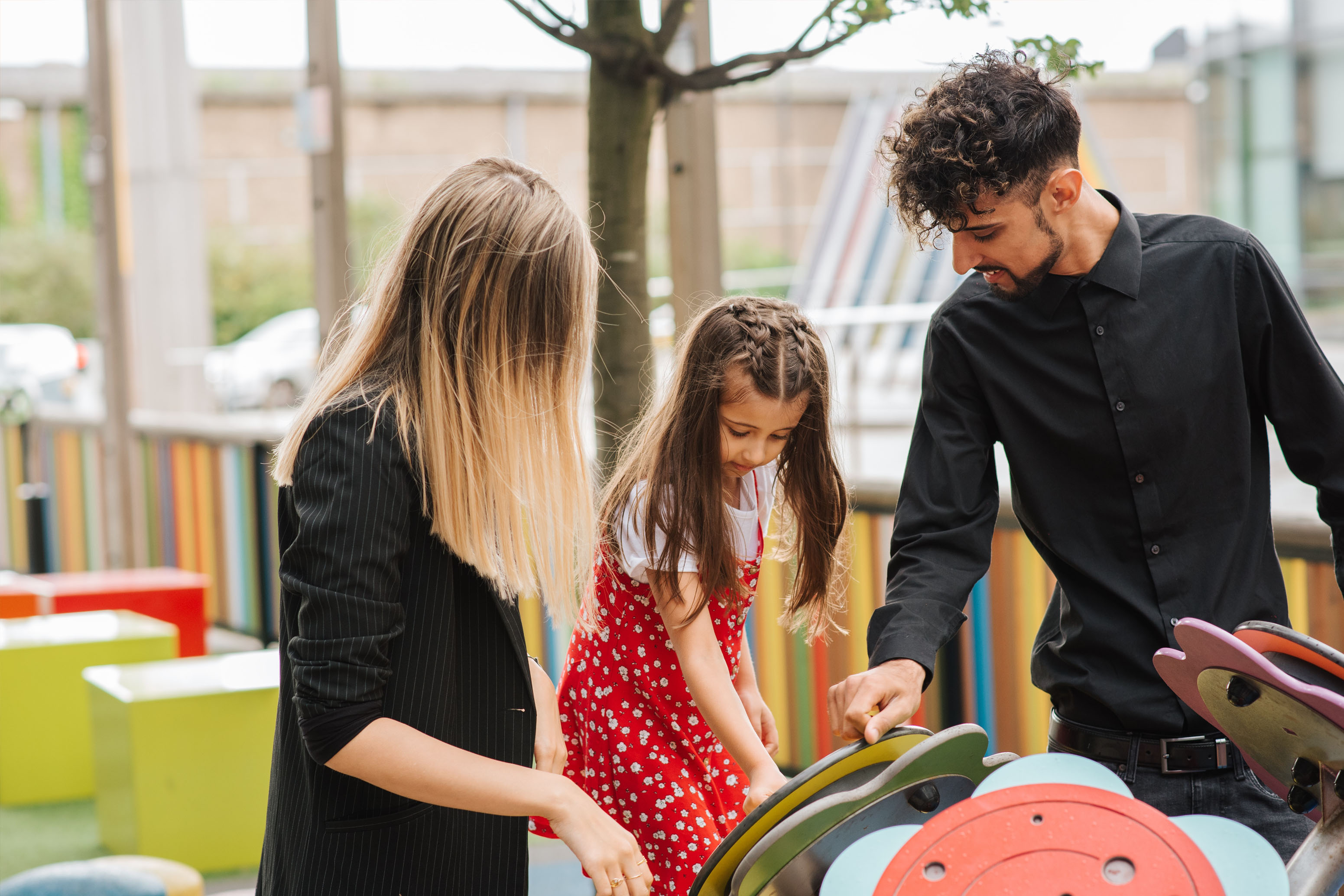
Source: Pexels
Benefits of Playgrounds
Cognitive Benefits:
Although it may not appear so to an outsider, watching children play on the playground or being involved in child’s play provides many benefits that are essential to a child’s growth and development - both physically and emotionally. By playing with other children, they learn important social skills such as how to share, take turns, and resolve conflicts. Playing also helps children develop their imaginations, creativity, and problem-solving skills. Furthermore, playing is a great way for children to get the exercise they need to stay healthy and promotes gross motor skills development.
Cognitive skills are the main skills that the brain uses to think, learn, read, remember, reason, and pay attention. Playgrounds provide children with the opportunity to develop these skills through play. When children explore and interact on playgrounds, they get the chance to think critically, plan strategically and learn problem-solving skills. They will also learn to practice new language and literacy skills from imaginative play. On playgrounds, children have the opportunity to interact with a diverse group of peers and build new relationships. This continued exposure to diversity will help children learn to interact with others who may be different from them.
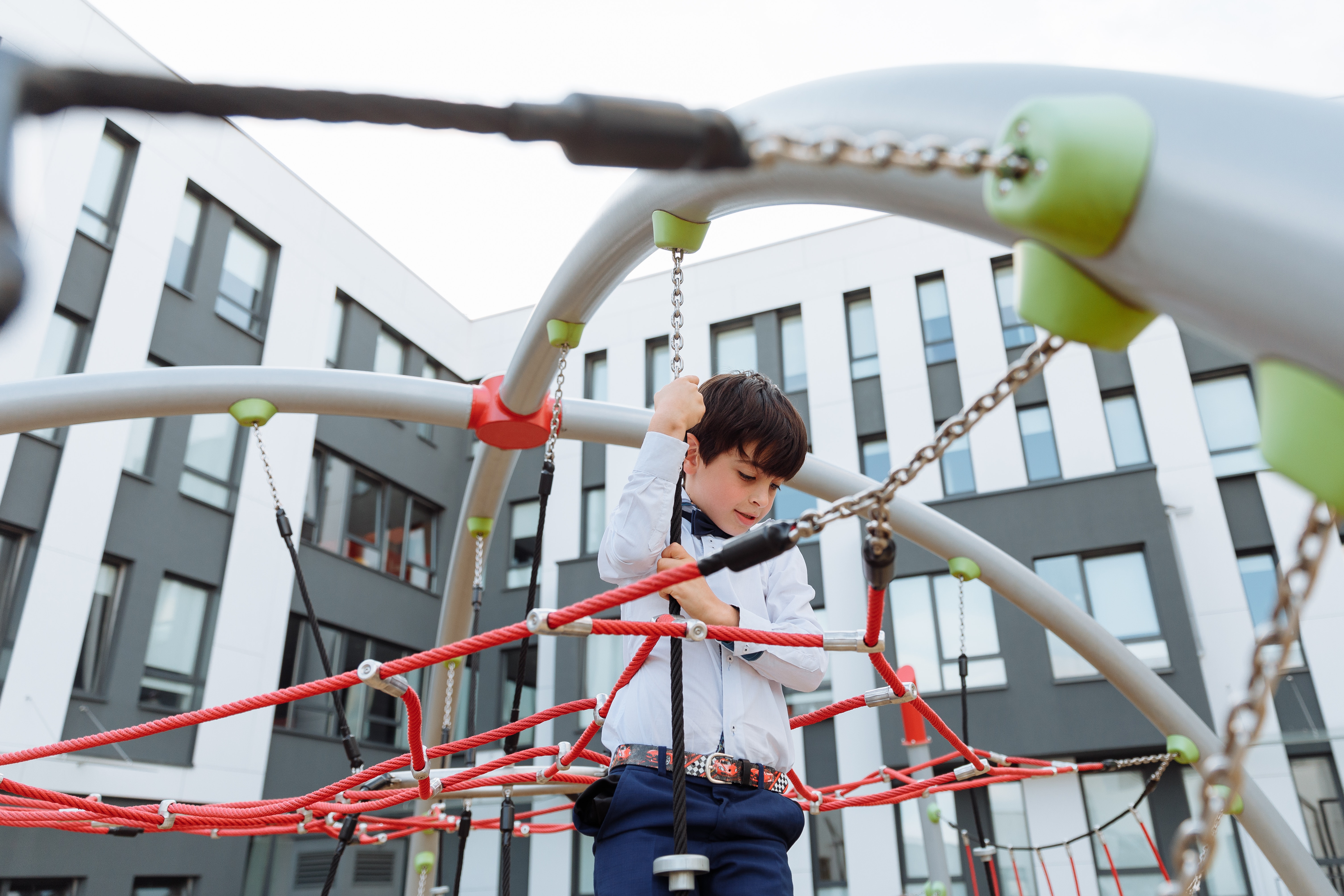
Source: Pexels
Health Development Benefits:
Playgrounds provide a positive impact on children as they develop physically, mentally, and emotionally. By offering different opportunities for children of all abilities to engage in developmental play, playgrounds support many important skills for their future success. These skills include physical health, social skills, and cognitive skills. Playgrounds are therefore very important for children’s successful functioning as they grow older.
There are many benefits to physical activity, especially when it comes to cardiovascular health and upper-lower body strength. Playground equipment can also help improve balance, hand-eye coordination, and agility. So get out there and have some fun while improving your health!
Physical Benefits:
Playgrounds provide children with the perfect opportunity to get in their recommended daily dose of exercise while also having a lot of fun. Studies have shown that it’s important for children to have at least 60 minutes of moderate to vigorous physical activity each day, and playgrounds are the perfect place for just that. By getting into the habit of exercising at a young age and seeing it as an enjoyable experience, children are more likely to remain active as they grow older.
The benefits of playground experiences for children are numerous and well-documented. For example, playgrounds offer a great opportunity for children to get a full-body workout, including exercises that will strengthen their torso, arms, and legs. Additionally, playground activities can nurture and benefit the child’s circulatory and cardiovascular systems.
Here are a few physical benefits of playground play:
- Development of overall motor skills, hand-eye coordination, and dexterity
- Promotion of healthy lung and heart function
- Improved balance and flexibility
- Stronger muscles
- Learn how to control their movement
- Improved immune function
There are many great playground types of equipment that can help children develop their physical skills, such as slides, climbers, and swings. By allowing children to test their physical abilities, they will be able to strengthen their bodies and become more confident in their movements. slides, climbers, and swings can help encourage children to develop their speed, balance, strength, coordination, and agility.

Source: Unsplash
Social Development Benefits:
Playgrounds offer a great opportunity for social interaction and learning. When children are on playgrounds, they will be able to meet other children and make friends. They will also be able to learn how to play with different individuals. This will help them develop the skills they need to successfully interact with different kinds of people. Additionally, playgrounds provide children with the space they need to explore and practice socialising without much assistance from their parents. Children who attend preschool will learn essential social skills like how to communicate and cooperate with their peers, which will be beneficial in their future workplace and personal relationships.
Children interact more freely and enjoyably with one another when there’s an element of fun involved, which is why playgrounds are the ideal place for them to do so. Studies have found that on playgrounds, children spend approximately 80% of their time socialising with each other. With a variety of fun equipment types available, children are given the opportunity to interact with their peers in a natural way while having fun. Playgrounds provide children with an opportunity to learn essential life skills such as sharing, taking turns, and being good-natured whether they win or lose. By being exposed to such social interaction at a young age, children will mature into balanced and positive adults.
Playgrounds are a crucial part of childhood development as they provide opportunities for social interaction, physical activity, and cognitive stimulation. In recent years, there has been a push for playgrounds to be more inclusive of children with special needs so that all kids can enjoy the same benefits of playing together. These types of playgrounds are specially designed to be accessible and provide valuable opportunities for children to learn about inclusivity from a young age. By blending in and playing together in the same space as the children who have special needs, they will be able to see and learn about the similarities rather than the differences. This will teach them a positive and open-minded mindset that they can carry with them throughout their lives.
In addition to the main playground areas, many playgrounds also offer what are called “comfort-zone spaces” for children who either don’t feel comfortable playing with a lot of other children at the same time or can’t tolerate loud noises. These comfort-zone spaces provide children with invaluable social experiences by allowing them to socialise with children of all ability levels.
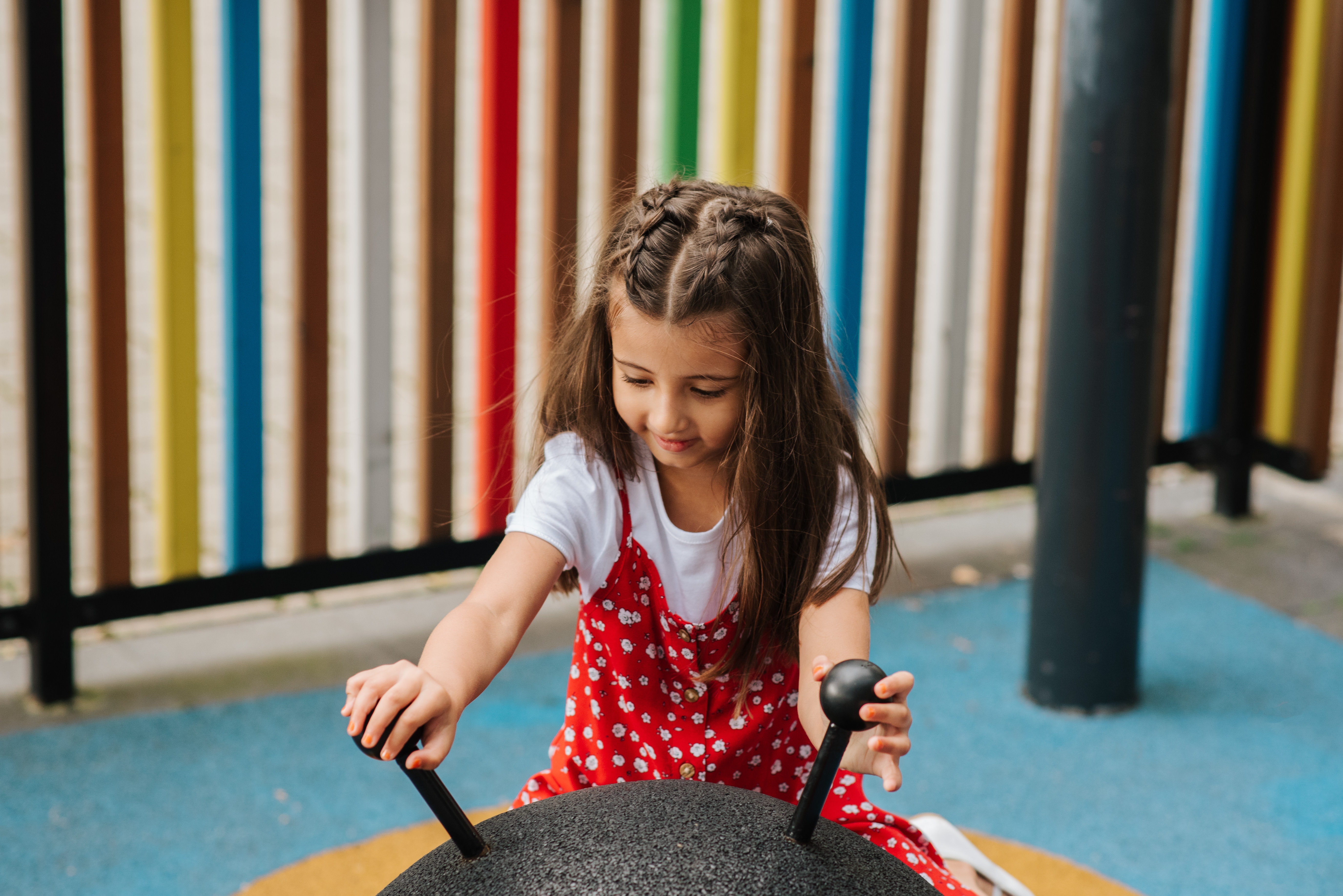
Source: Pexels
Other Benefits
Emotional Impact
Physical activity and playtime on playgrounds help to serve as a healthy way for children to deal with their emotions, increase positivity and reduce stress levels. Children derive many benefits from being given the opportunity to play on playgrounds. They learn how to boost their self-confidence and esteem by mastering challenging playground structures. This in turn gives them a sense of control which may be unavailable in other parts of their lives. Additionally, playing on playgrounds lowers tendencies to misbehave and teaches children how to deal with many challenges in a positive and healthy way.
Children often explore a range of emotions while playing on playgrounds or in other open spaces that they might not otherwise get to experience. Additionally, using their imaginations during play will help them to cope with and understand reality, as well as encourage them to deal with tough emotions such as frustration, anger, and boredom in healthy ways. Playtime is thus an important part of a child’s development and growth.

Source: Pexels
Develop a Stronger Sense of Community
Apart from schools, play spaces, community parks, and playgrounds can serve as a perfect medium to enable children from different backgrounds, races, ages, and abilities to socialise. Children will be able to develop an intensive understanding of the world around them and their community, it will provide them with an enhanced sense of community spirit as children will learn to see their public playgrounds or parks as important shared spaces with their neighbours.
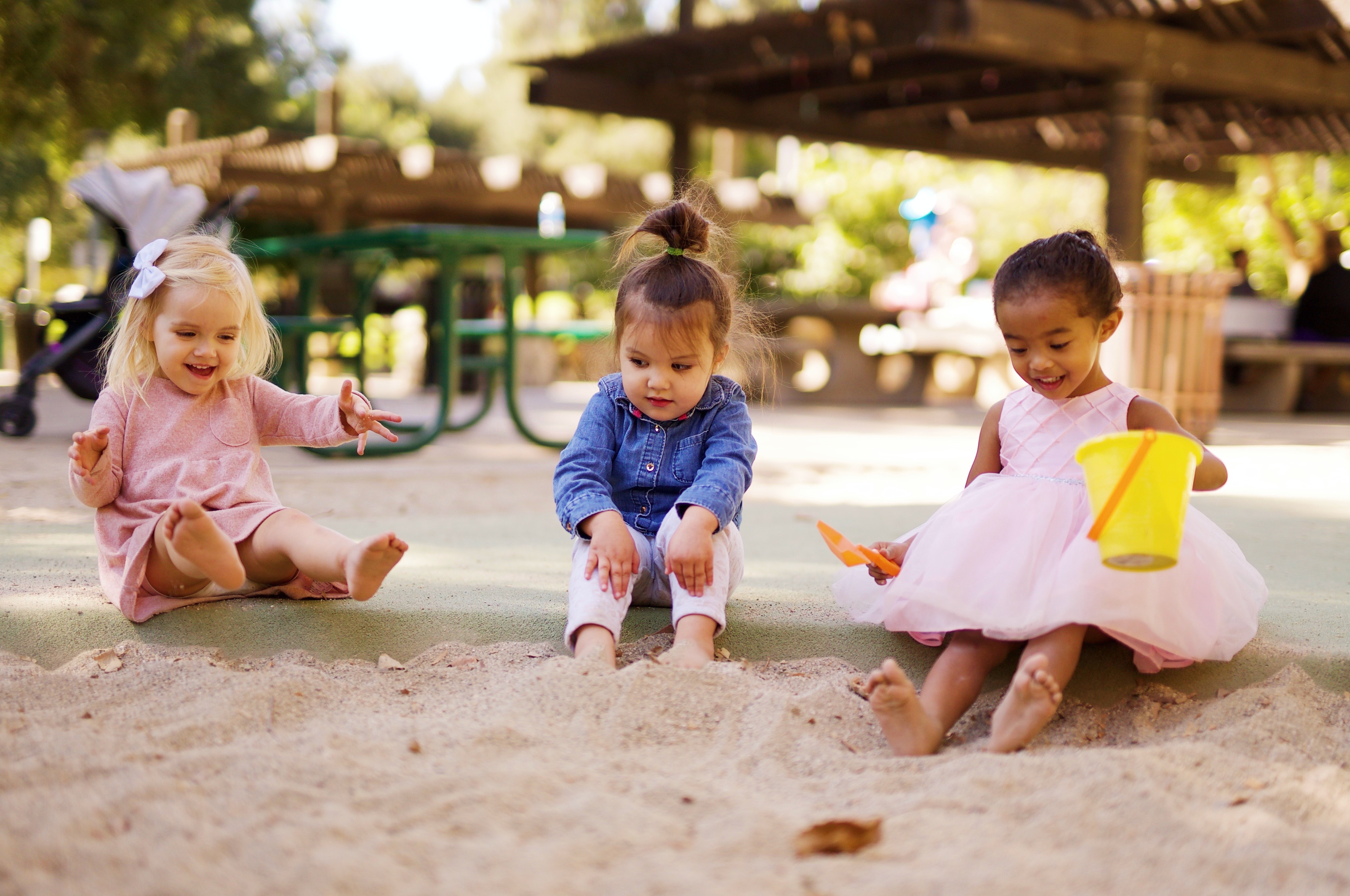
Source: Unsplash
Develop Children Imagination
On playgrounds children often playhouse and roles with their peers, imaginary play is an important part of the playgrounds game set for children, when they use imagination and play make-believe, it teaches children social roles, and it also fosters children’s abilities to solve issues and helps to develop their personality. Using imagination, children will be able to try out different identities and ideas as they like, this will help them greatly in constructing a strong sense of self, as they will discover what they like, dislike and beliefs.
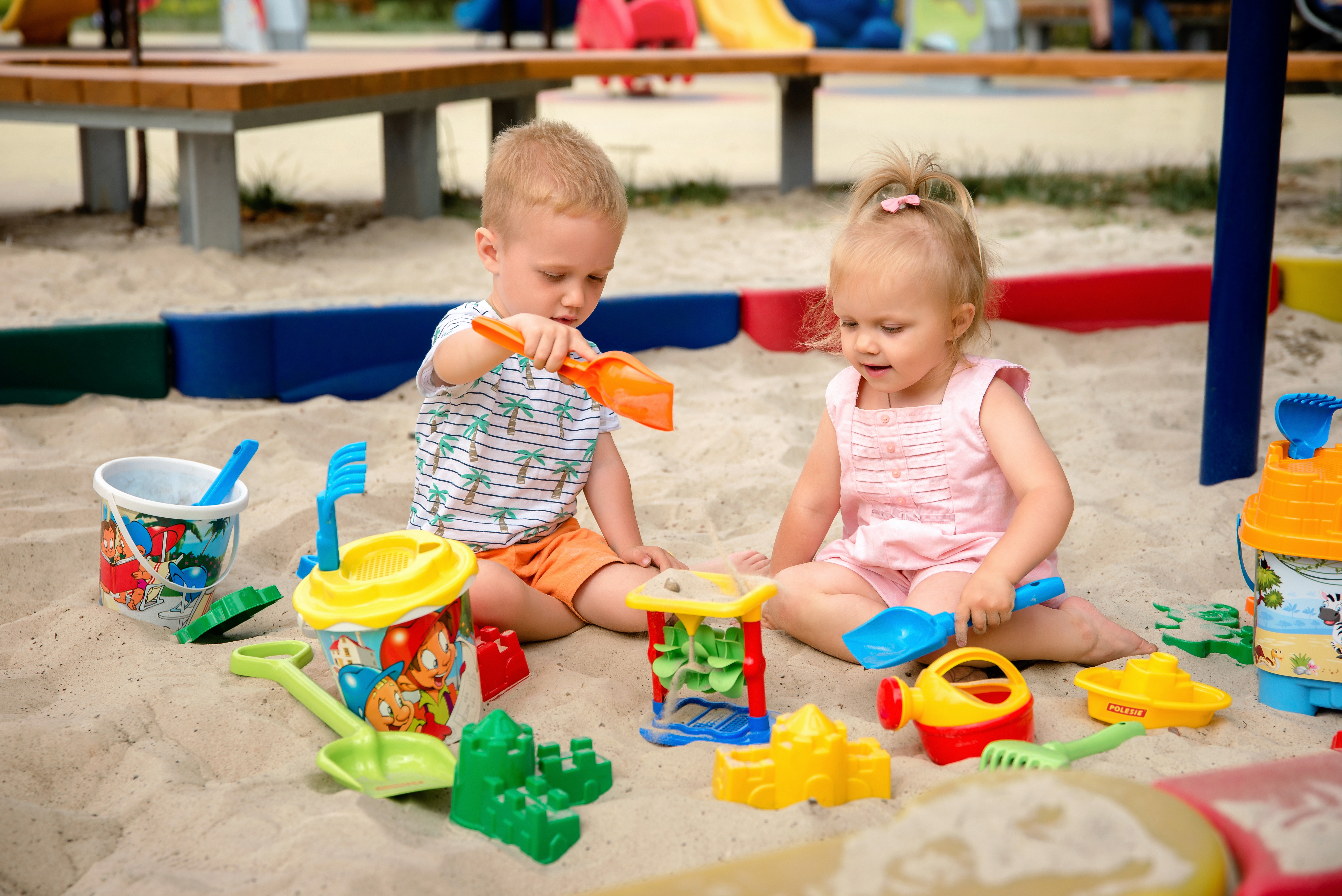
Source: Pexels
Better Quality Sleep
This is a no-secret strategy that most probably every parent would prefer to do. Children who spend a significant amount of time playing outdoors tend to sleep a lot better, they will go to bed earlier, and they will wake up more refreshed than those who spend a lot of time indoors. When the weather is well, the sun comes up, take your little ones down to the playground and let them burn those energies off, it will help them feel better and exercise their muscle while having a lot of fun, and finally it will lead them to a night of good night sleep.

Playgrounds Equipment & Its Benefits:
Playground is a very important element to children’s health, mind and body development, and it provides opportunities for them to practice various range of social, physical, emotional and mental skills, it is important to understand the benefits of equipment to your local playgrounds so parents will be able to increase the value of play. Playground activities such as sliding, climbing, and swinging may appear to be “just a fun” activity on the outside, but it actually helps to initiate children’s important body systems in order for them to develop and function properly.
“Through play, all children discover their world and how to be successful in it. The more they play, the more they develop skills necessary to engage, change and impact the world around them” – Ingrid M. Kanics, Therapist and Inclusive Play Expert.
Play that involving gross motor skills such as rope climbers, stone climbers, rock areas, overhead ladders, and slides are the most popular and fully occupied, when children play and engage in activities that help to build and develop gross motor skills they are exercising and building upper-lower-body core strength, and it can also help to increase heart rate and improve agility, balance and cardiovascular health.
Here is a few list of playgrounds equipment and its benefits:

Source: Unsplash
Swings or swing set:
Griping the chains and sitting on a swing helps children to balance themselves, it develops gross motor skills and coordination as they hold on to the chain and push their legs up to reach the sky.
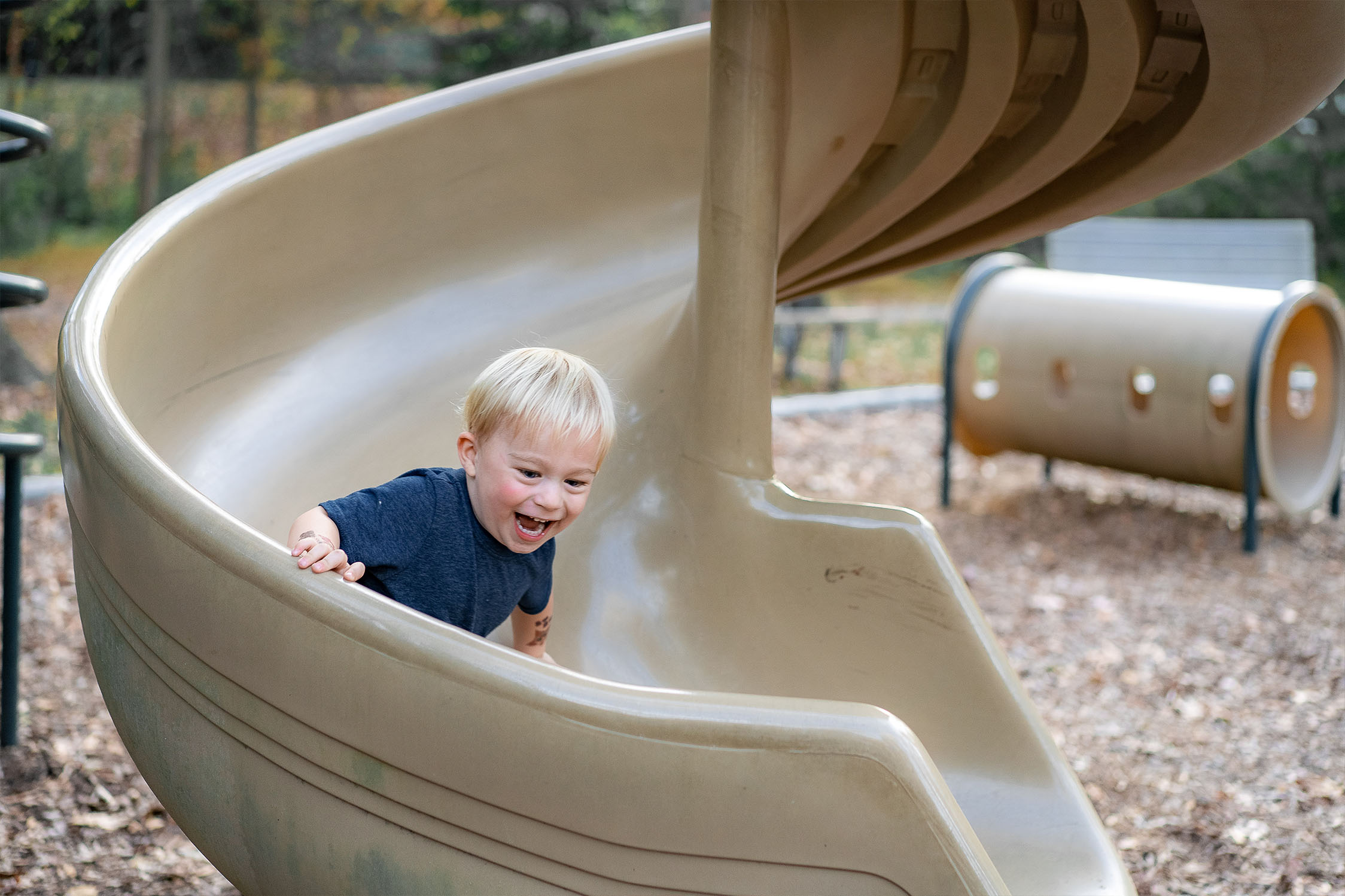
Source: Unsplash
Slides:
Slides help to motivates children to get a workout, it strengthens their hands and legs muscles as they climb the ladder to slide down.

Source: Pexels
Climbers:
Rope climbers or rock climbing allow children to overcome fears and challenges, it also builds strength, coordination, and motor skills, it strengthens almost every muscle in their body.
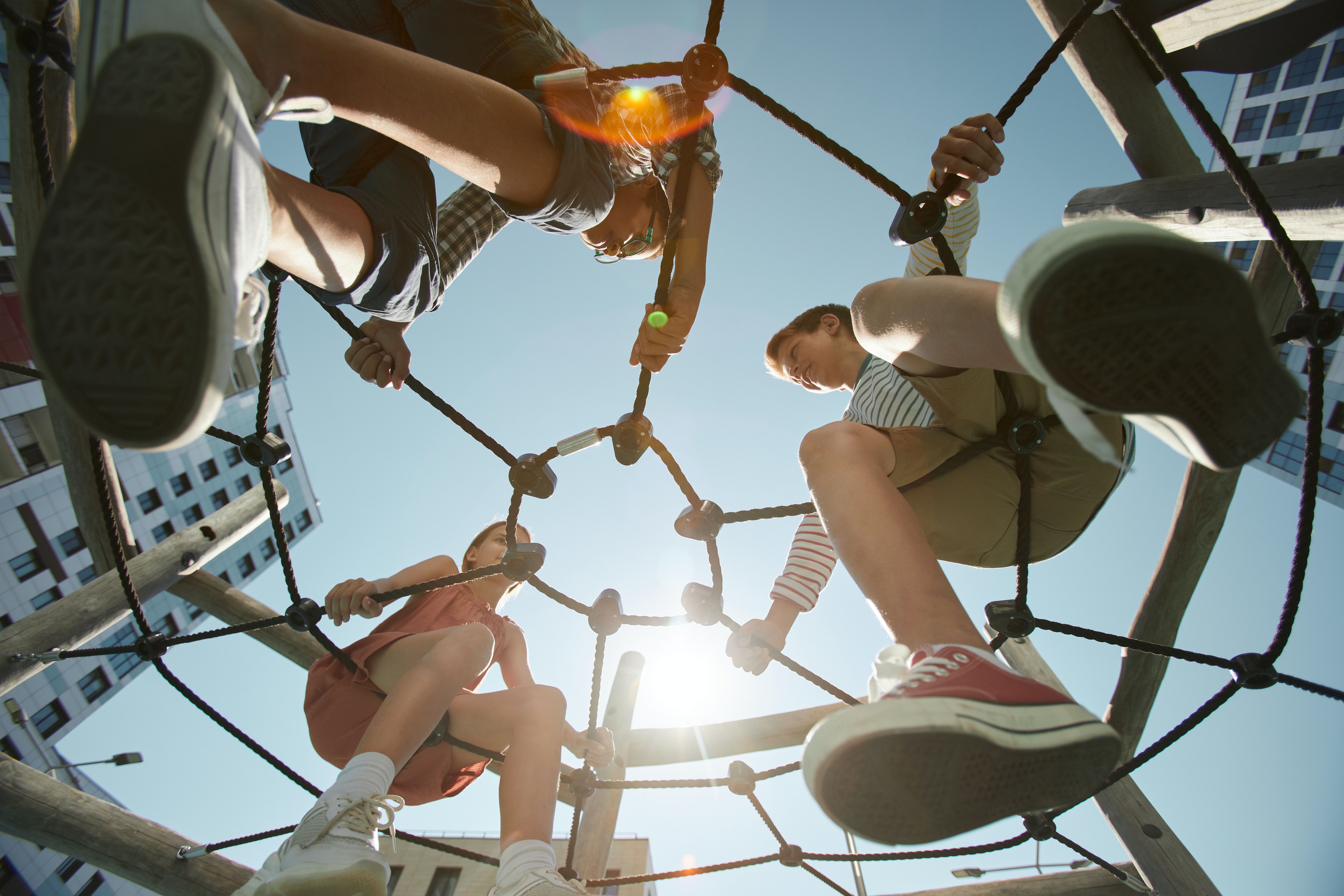
Source: Pexels
Trampolines:
Trampolines provide a perfect workout and help children to develop physical skills, such as balance and coordination.
Conclusion
For children, a spontaneous playground is just as important for their development as the structured sport or gym class at their school. When children go to playgrounds on a regular basis, they learn how to develop physical, emotional, and social skills that will help them communicate better with their peers. On playgrounds, children are faced with a wide range of individuals from different backgrounds, abilities, and ages. They learn how to adapt, accept, and compromise so they can join the fun and play together.
Children who frequently visit playgrounds or other play spaces are five times more likely to be a healthy weight than those who spend most of their time indoors, according to a study. Playgrounds are a perfect way for children to exercise and develop important skills that will be beneficial for their growth. The study found that playgrounds also effectively improve health overall for children.
When children are playing, they’re not just playing - they’re also using their imagination to create their own little world that’s perfect in their own eyes. And on playgrounds, they’ll start to allow their friends to enter into their world too. From this, children will learn how to compromise; something that’s essential for the long-term development of a well-adjusted and happy child.

.jpg)

